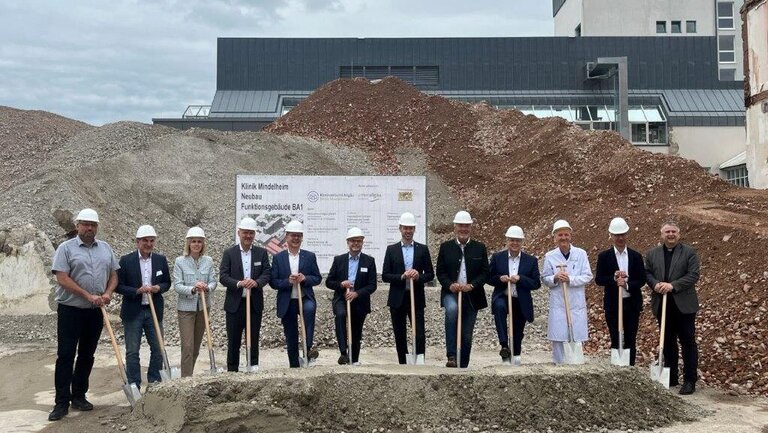Mindelheim (rural district Unterallgäu, Germany), July 18, 2024. Mindelheim Hospital in the Allgäu region of southern Germany treats over 7,500 patients each year and performs around 2,500 inpatient and 500 outpatient operations. In order to ensure that good medical care continues to be delivered, the Allgäu Hospital Authority, the rural district Unterallgäu and the Free State of Bavaria are investing around 100 million euros in a hospital campus that is fit for the future. Over the next three years, a modern building complex will be constructed on the site at Bad Woerishofer Strasse to replace the aging existing buildings and create space for effective medical infrastructure. The target is a hospital with short distances, ensuring patient needs are immediately and efficiently met. The hospital has brought Drees & Sommer SE on board for project steering. The experienced partner company specializes in construction and real estate consulting.
"We are aiming to create an optimal environment for patients and staff. Sick people need to be cared for without long routes and waiting times, while doctors and nursing staff need an efficient working environment. We are reaching the limits of our current building," says Hospital Chief Executive Florian Glück. Overall renovation of the existing building was initially examined. Result: a new complex is the most appropriate and economically feasible solution for a hospital with short routes.
Two Stages for the Construction of a Future-Proof Hospital Campus
To minimize the impact on staff and patients, work will be carried out in two construction stages. Yesterday's groundbreaking ceremony marked the start on a functional building, which will include a new emergency department and outpatient areas as well as operating theaters and delivery rooms. In the second phase of construction, the administration building from 1910 will make way for a modern ward block with 135 beds.
Helen Sengler, who manages the construction project at Drees & Sommer, explains: “The structure of hospital buildings has a significant influence on internal clinical processes and consequently also on the quality of patient care. This is why our project management involves doctors, process specialists and engineers working together with hospital staff to create a forward-looking design.”
Monitoring Time and Cost Parameters
”The project steering company Drees & Sommer acts as an interface between the hospital, architects, specialist planners and the executing companies. “It is our job to keep to the tight schedules, control costs and ensure the highest quality standards,” Helen Sengler continues. The new hospital building places high demands on the team due to the complex requirements in terms of functionality, infrastructure and conversion while the hospital continues its normal work.
For Florian Glück, the new hospital is a key pillar of local healthcare: "With its modern facilities, the campus creates the basis for continuing to provide top-level medical services. We also ensure that care is provided close to home, which is becoming increasingly important in view of demographic change.”
